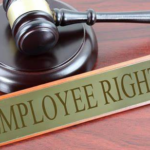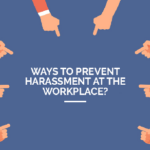The Vital Role of HR in Addressing Workplace Harassment and Discrimination
In the realm of human resources (HR), fostering a safe, inclusive, and respectful workplace is not only a moral imperative but also a legal obligation. The role of HR in addressing workplace harassment and discrimination is pivotal, serving as the linchpin in creating an environment where employees can thrive without fear of mistreatment. In this blog post, we will delve into the multifaceted responsibilities of HR in tackling these sensitive issues.
- Policy Development and Implementation:
HR plays a central role in crafting and implementing policies that explicitly address workplace harassment and discrimination. These policies should be comprehensive, clearly outlining what constitutes unacceptable behavior, the reporting mechanisms in place, and the consequences for offenders. Communicating these policies to all employees ensures awareness and sets expectations for a respectful work environment. - Education and Training Programs:
Educating employees about the importance of diversity, inclusion, and respectful conduct is a proactive measure to prevent harassment and discrimination. HR is instrumental in developing and facilitating training programs that raise awareness, promote sensitivity, and equip employees with the skills to identify and address inappropriate behavior. Regular training sessions help create a workplace culture where discrimination is not tolerated. - Providing a Safe Reporting Channel:
HR serves as a confidential and trustworthy channel for employees to report incidents of harassment or discrimination. Establishing clear reporting procedures and ensuring that employees feel safe coming forward with their concerns are essential responsibilities of HR professionals. An open-door policy and the availability of anonymous reporting mechanisms can encourage individuals to speak up without fear of retaliation. - Investigating Complaints:
When allegations of harassment or discrimination arise, HR takes the lead in conducting impartial and thorough investigations. This involves gathering evidence, interviewing relevant parties, and ensuring a fair and unbiased process. Timely and effective investigations are crucial in resolving issues, holding wrongdoers accountable, and maintaining the trust of the workforce. - Mediation and Conflict Resolution:
In situations where conflicts arise but do not necessarily involve formal harassment or discrimination, HR can act as a mediator to facilitate resolution. Implementing conflict resolution strategies helps prevent escalation and fosters a positive working environment. Mediation can involve bringing together parties in a safe space to discuss concerns and find mutually agreeable solutions. - Implementing Remedial Actions:
When workplace harassment or discrimination is substantiated, HR must take appropriate remedial actions. This may involve disciplinary measures, sensitivity training for offenders, or systemic changes to prevent future incidents. HR’s role extends beyond investigation to actively contribute to the resolution and prevention of discriminatory practices within the organization. - Collaboration with Leadership:
HR professionals collaborate with organizational leadership to create a culture of respect and inclusion. This involves aligning HR initiatives with the company’s mission, values, and strategic goals. By working closely with leadership, HR ensures that efforts to address harassment and discrimination are integrated into the broader organizational framework. - Legal Compliance and Risk Management:
Staying abreast of employment laws and regulations is crucial for HR professionals. Compliance with anti-discrimination laws, reporting requirements, and other legal obligations is essential to mitigate legal risks for the organization. HR acts as a guide to ensure that the company’s policies and practices align with the ever-evolving legal landscape.
Conclusion
In conclusion, the role of HR in addressing workplace harassment and discrimination is multifaceted and indispensable. By taking a proactive stance through policy development, education, and training, HR professionals contribute to the prevention of these issues. Additionally, HR’s role in investigation, mediation, and collaboration with leadership is instrumental in creating a workplace where every individual feels respected and valued. As organizations continue to prioritize diversity and inclusion, the importance of HR in fostering a positive and discrimination-free workplace cannot be overstated.











 LOOKING FOR A JOB?
LOOKING FOR A JOB?